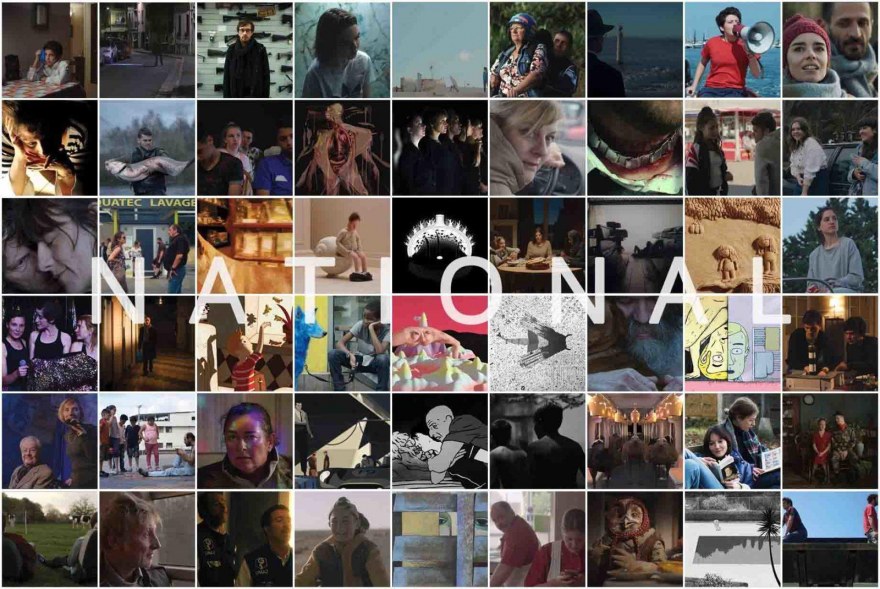[Editorial] National Competition 2019
The 41st edition of the French National Competition offers 54 films, including 22 directed or co-directed by women.
And indeed women are at the center of many of these films. If Pauline waits desperately for a text message (Pauline asservie), Marie-Pierre makes the rules in her birdcage (Le mal bleu), Agathe wants a child at any and all costs (La nuit des sacs plastiques), Sabine and Natacha, who get bored in the country, end up adrift (Tigre) while other women sing as an act of resistance, showcased by the direction of Jean-Gabriel Périot (De la joie dans ce combat).
Men, on the other hand, are not as robust: Michel fights his past and his addiction (Beautiful Loser), Émile gave up on life and paints his world in monochrome (Chien bleu), Jean is adrift in a struggling slaughterhouse, and finds an answer to his financial woes with an enterprise that is anything but vegan (Matador), while Acacio leaves the company of people, in favor of dogs (Jauria).
In comparison to the adults who are often overwhelmed, children many times have to fend for themselves, sometimes adrift, but still able to find the energy needed to get by. They’ll kill time at the fairground (La Ducasse), hit an unexpected jackpot in the desert (Nefta Football Club), or on the dance floor, pick up the prettiest girl in school (Souvenir inoubliable d’un ami). For Siri and Fatiya, innocence gives way to more serious times, and it becomes difficult to fight social realities (The Animal) or babysitting while wearing a veil (Fatiya), even though they would rather find the apparently fun-loving nature of Cédric et Sofiane, who decide to simply go out naked in the streets at night (Nus dans les rues la nuit).
Relationships between teenagers and their parents are not any simpler. Milène takes the wisdom of Momo to help forget about her mother’s illness (Automne malade), Christelle struggles in her dealings with her troubled father who lives on a floating hut in the Loire River (La route du sel), and Marin takes a few days leave to stay with his mother, in equal parts tenderness and sorrow (Soleil d’hiver).
In the thick silence of families, we notice a great number of ghosts this year: an omnipresent father in Je sors acheter des cigarettes, a begonia-loving companion (Des fleurs), the shadow of a friend who is gone (Guaxuma), the terrible secret of an old man (Le chat qui pleure), and the transfer of grief (Roberto le canari).
Migration, as one could expect, is at the heart of a number of films, and rather than filming the exodus, the filmmakers have chosen to show us what exile looks like. Zhenos, 11, shares her daily life with us, staying in a hotel in Athens surrounded by Afghan refugees who, like her, try to start a new life, however temporary and uncertain (City Plaza Hotel). Familleinvites us into the home of Lisa, who has a hard time deciphering the intentions of the Somali family who stays with her.
When nothing is going right, what to do? Why not take up arms: grab a rifle and hold up the bar where you usually have beers (Claude libre), rob a service station and take the owner hostage, only to realize they have Stockholm Syndrome, and apparently, it’s contagious (Braquer Poitiers), buy a paintball rifle and take vengeance (Air comprimé), or go on the run with a ham that’s worth 30,000 euros (Jupiter!).
The 2019 French National Competition is very diverse in its storytelling and its techniques.
Animation, which, remember, is a technique, not a genre, will be particularly well-represented this year with 15 films that go from 2D to 3D, from drawing to painting, and from pixilation to animated puppets. Films taking on strong subjects in a serious way or less so: a printing press in the digital age (Hurlevent), a drama about the automobile (Le Mans 1955), Belgium’s relationship to its colonial past (Ce magnifique gâteau!), anorexia (Egg), lust and sin (Raymonde ou l’évasion verticale), and a seemingly normal afternoon in the south of France with the sounds of the cicadas (Riviera).
Storytelling in narrative films can take many different paths: literary and hypnotic as we watch a presentation on Camus being prepared (Tomber) or inviting us to watch an advertising campaign by a great Portuguese writer for Coca-Louca (Comment Fernando Pessoa sauva le Portugal); a film coming from a workshop for young people in Marseilles who take a bus trip (Barcelona); a docu-fiction on the hunt for a fish that seems harmful (Le baiser du silure); a genre film shares an utterly incredible story from recent news (Diversion); a suspense film portrays absurd security measures (Mort aux codes).
It took seven months to watch the 2,033 French productions or co-productions. This is a record number of films to be registered for the National Competition of Clermont-Ferrand, and it was a real pleasure for the selection committee to see French cinema so diverse in its subjects and ways of telling stories. It was great to see so many offerings that speak about the world with strong artistic choices, and often with humor.
A pleasure and a really nice surprise to see actor Philippe Polet again, this time in a poignant docu-fiction filmed by his own daughter in fact (Moi votre ami), more than 30 years after his title role in Intérim by Jean-Pierre Ameris (National Grand Prize at Clermont-Ferrand Short Film Festival in 1988).
We hope that Clermont audiences and the National Jury will share this pleasure with us.








